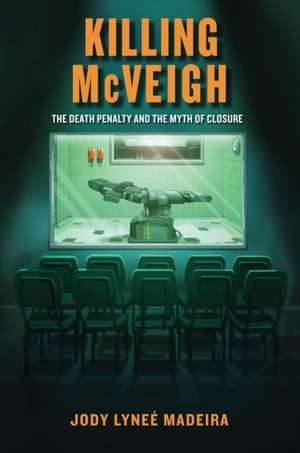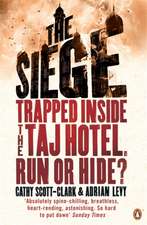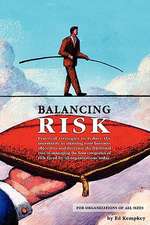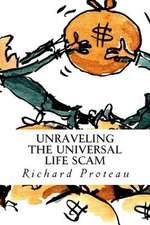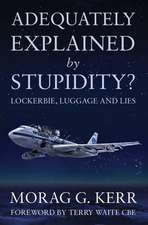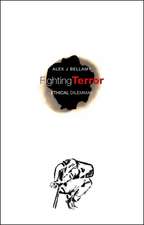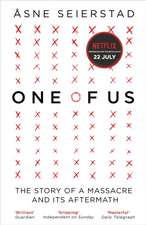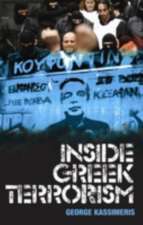Killing McVeigh – The Death Penalty and the Myth of Closure
Autor Jody Lyneé Madeiraen Limba Engleză Paperback – 31 oct 2013
| Toate formatele și edițiile | Preț | Express |
|---|---|---|
| Paperback (1) | 242.60 lei 6-8 săpt. | |
| MI – New York University – 31 oct 2013 | 242.60 lei 6-8 săpt. | |
| Hardback (1) | 529.69 lei 6-8 săpt. | |
| MI – New York University – 10 iun 2012 | 529.69 lei 6-8 săpt. |
Preț: 242.60 lei
Nou
Puncte Express: 364
Preț estimativ în valută:
46.43€ • 47.96$ • 38.64£
46.43€ • 47.96$ • 38.64£
Carte tipărită la comandă
Livrare economică 25 martie-08 aprilie
Preluare comenzi: 021 569.72.76
Specificații
ISBN-13: 9781479856671
ISBN-10: 1479856673
Pagini: 348
Dimensiuni: 154 x 228 x 21 mm
Greutate: 0.43 kg
Editura: MI – New York University
ISBN-10: 1479856673
Pagini: 348
Dimensiuni: 154 x 228 x 21 mm
Greutate: 0.43 kg
Editura: MI – New York University
Recenzii
"Sixteen years after the horror of the Oklahoma City bombing, it may now be possible to examine that dark day with some objectivity. In Killing McVeigh, Professor Madeira offers a faithful account of what followed through the words of victims and survivors. Her analysis shows how the death penalty forced so much energy and focus to be put on McVeigh, and how difficult it is to make sense of such a tragedy." -Richard C. Dieter, Executive Director, Death Penalty Information Center"Everyone seems to have an opinion about whether the execution of murderers can offer 'closure' to the victims loved ones. Finally, we have a study that has investigated the largest, most media-saturated mass murder and execution in recent times - the Oklahoma City bombing and the execution of Timothy McVeigh. Madeiras in-depth, fair-minded, and sensitive account opens a window for us into the struggles of those affected and explores the complicated role that our public institutions of criminal justice play in the complex and difficult work of reconstructing life after atrocity."-Carol Steiker, Henry J. Friendly Professor of Law, Harvard Law SchoolIntense yet compassionate, Killing McVeigh is a window into the horror, trauma and outrage experienced by the survivors and family members of the 168 victims murdered in the Oklahoma City bombing. This important volume thoughtfully chronicles the challenges encountered in the victims' quest for healing, testifies to the importance of attending to anger and grieving, and affirms the continuation of life in the aftermath of murder and loss. Madeira provides us with a blueprint for reengaging with closure and healing, penetrating glib rhetoric to chronicle both the blessings of friendship and community and the wrenching experiences of incessant media crisis coverage and capital proceedings, while identifying new challenges that confront us in this age of terrorism."-Sister Helen Prejean, author of Dead Man Walking"Clearly written and persuasive, this is an important contribution to the literature of closure."-Harry Charles, Library Journal"Madeira proves a sensitive, nuanced, and empathetic witness to the painful journeys of the [Oklahoma City] survivors' and victims' families."-Contemporary Psychology
"Sixteen years after the horror of the Oklahoma City bombing, it may now be possible to examine that dark day with some objectivity. In Killing McVeigh, Professor Madeira offers a faithful account of what followed through the words of victims and survivors. Her analysis shows how the death penalty forced so much energy and focus to be put on McVeigh, and how difficult it is to make sense of such a tragedy." -Richard C. Dieter, Executive Director, Death Penalty Information Center "Everyone seems to have an opinion about whether the execution of murderers can offer 'closure' to the victims' loved ones. Finally, we have a study that has investigated the largest, most media-saturated mass murder and execution in recent times - the Oklahoma City bombing and the execution of Timothy McVeigh. Madeira's in-depth, fair-minded, and sensitive account opens a window for us into the struggles of those affected and explores the complicated role that our public institutions of criminal justice play in the complex and difficult work of reconstructing life after atrocity."-Carol Steiker, Henry J. Friendly Professor of Law, Harvard Law School "Intense yet compassionate, Killing McVeigh is a window into the horror, trauma and outrage experienced by the survivors and family members of the 168 victims murdered in the Oklahoma City bombing. This important volume thoughtfully chronicles the challenges encountered in the victims' quest for healing, testifies to the importance of attending to anger and grieving, and affirms the continuation of life in the aftermath of murder and loss. Madeira provides us with a blueprint for reengaging with closure and healing, penetrating glib rhetoric to chronicle both the blessings of friendship and community and the wrenching experiences of incessant media crisis coverage and capital proceedings, while identifying new challenges that confront us in this age of terrorism."-Sister Helen Prejean, author of Dead Man Walking "Clearly written and persuasive, this is an important contribution to the literature of closure."-Harry Charles, Library Journal "Madeira proves a sensitive, nuanced, and empathetic witness to the painful journeys of the [Oklahoma City] survivors' and victims' families."-Contemporary Psychology
"Sixteen years after the horror of the Oklahoma City bombing, it may now be possible to examine that dark day with some objectivity. In Killing McVeigh, Professor Madeira offers a faithful account of what followed through the words of victims and survivors. Her analysis shows how the death penalty forced so much energy and focus to be put on McVeigh, and how difficult it is to make sense of such a tragedy." -Richard C. Dieter, Executive Director, Death Penalty Information Center "Everyone seems to have an opinion about whether the execution of murderers can offer 'closure' to the victims' loved ones. Finally, we have a study that has investigated the largest, most media-saturated mass murder and execution in recent times - the Oklahoma City bombing and the execution of Timothy McVeigh. Madeira's in-depth, fair-minded, and sensitive account opens a window for us into the struggles of those affected and explores the complicated role that our public institutions of criminal justice play in the complex and difficult work of reconstructing life after atrocity."-Carol Steiker, Henry J. Friendly Professor of Law, Harvard Law School "Intense yet compassionate, Killing McVeigh is a window into the horror, trauma and outrage experienced by the survivors and family members of the 168 victims murdered in the Oklahoma City bombing. This important volume thoughtfully chronicles the challenges encountered in the victims' quest for healing, testifies to the importance of attending to anger and grieving, and affirms the continuation of life in the aftermath of murder and loss. Madeira provides us with a blueprint for reengaging with closure and healing, penetrating glib rhetoric to chronicle both the blessings of friendship and community and the wrenching experiences of incessant media crisis coverage and capital proceedings, while identifying new challenges that confront us in this age of terrorism."-Sister Helen Prejean, author of Dead Man Walking "Clearly written and persuasive, this is an important contribution to the literature of closure."-Harry Charles, Library Journal "Madeira proves a sensitive, nuanced, and empathetic witness to the painful journeys of the [Oklahoma City] survivors' and victims' families."-Contemporary Psychology
Notă biografică
Descriere
Descriere de la o altă ediție sau format:
Demonstrates the importance of understanding what closure really is before naively asserting it can or has been reached.
Demonstrates the importance of understanding what closure really is before naively asserting it can or has been reached.
